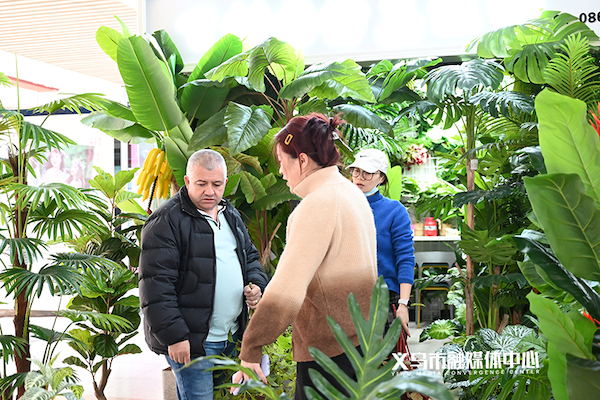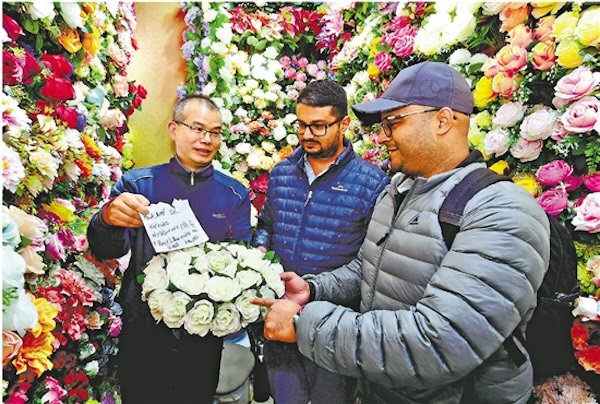Spending time locally

Indian athletes check out a potential purchase at Sijiqing clothing market. FAN LINA/FOR CHINA DAILY
Athletes and officials are battling for bargains at Sijiqing clothing market
After some cat-walking in front of the mirror and some hard haggling, Hansha Raj Wagle from Nepal and his fellow countrymen successfully landed their "spoils" at a store in the Sijiqing clothing market in Hangzhou, Zhejiang province.
A black suit jacket at 450 yuan ($61.75), a brown windbreaker at 360 yuan and a white wooly jumper at 150 yuan.
"I really enjoy this place, as there are a variety of clothes on offer and the shop owners are all very friendly," he said.
"More importantly," he continued, "the clothes come at a quite reasonable price."
Indeed, the delegate from the Nepal National Olympic Committee, attending the 19th Asian Games in Hangzhou, has visited the market three times in as many days, each time shopping as merrily as he could.
Wagle is the latest to come under the spell of the "shopping craze" that has been sweeping across the Asian Games villages.
"We've been receiving on average about 50 to 60 foreign athletes and delegates from various countries and regions every day," said Fu Gaojun, an official with the city's Caihe subdistrict, which administers the clothing market.
"Some of them will buy as many as 20 pieces of clothing and shop until the closing time of the market," he added.
Covering an area of more than 24.38 hectares, Sijiqing is about 20 minutes away from the Asian Games Village by taxi. It is one of China's largest wholesale and shopping markets for clothing. Over 1,200 garment manufacturing enterprises and 900 brands from home and abroad have a presence at the market, which boasts over 10,000 vendors.
It has also been endorsed by basketball royalty, hosting NBA Hall of Famer Shaquille O'Neal during his recent weeklong trip to China.
The name of the market seems to have spread like wildfire among Asian Games participants, after a video was posted online that apparently shows a member of the Indian delegation bargaining skillfully with a seller in the market on the opening day of the sports gala.
That viral video has undoubtedly played a crucial role in attracting Games participants to Sijiqing, but a few who had arrived in Hangzhou earlier had already visited the market four or five days before the event officially kicked off, according to Fu.
"They have clearly done their homework," he quipped.
A team comprising 15 volunteer interpreters was swiftly put in place by Caihe subdistrict to deal with any communication problems that international buyers may face.
"I'm really glad to be here to help them bargain for a better price," said Tian Ye, a member of the volunteer team, in fluent English.
While the interpretation work may be time-consuming, it is worth it, said Tian.
"They have come all the way from their countries to Hangzhou, and I do hope my service can make their stay during the Games as enjoyable as possible."
Apart from the Sijiqing clothing market, the Qianjiang Small Commodities Market and the Huanbei Silk & Fashion Center are two other shopping hot spots among foreign athletes and delegates at the Games.
The five other co-host cities of the Games also have their own unique shopping areas for domestic and international visitors to explore, such as the Keqiao Textile Market in Shaoxing city, the Yiwu International Trade City in Jinhua city and the Wuma Historic and Cultural Street in Wenzhou city.

 Yiwu and Qingtian: Global supermarket alliance spurs economic growth
Yiwu and Qingtian: Global supermarket alliance spurs economic growth Artificial flowers: Yiwu's evergreen business
Artificial flowers: Yiwu's evergreen business Yiwu Intl Trade Market reopens after Spring Festival holiday
Yiwu Intl Trade Market reopens after Spring Festival holiday